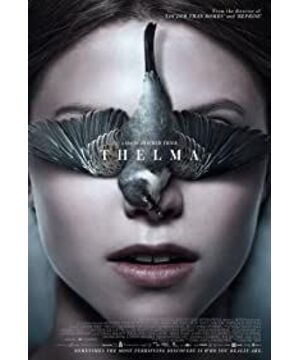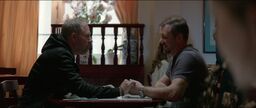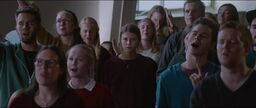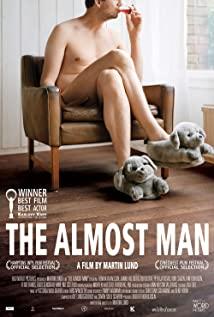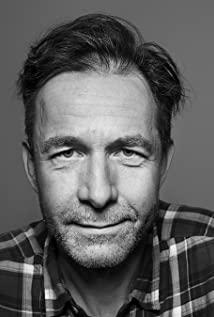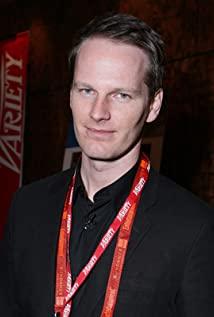Most of the videos posted recently are bland, not much to watch, and not enough to talk about. Today, I will change my taste and introduce a magical Nordic work, which will definitely make you applaud!
Nordic film "Thelma" (Thelma)
Genre: Drama, Fantasy
Main Cast: Eili Harboe (as Thelma)...
Plot synopsis: Thelma's Magical Life
Release Date: September 15, 2017 in Norway
This is a typical fantasy, psychology, stream of consciousness masterpiece, with a simple plot (on the surface "homosexual love"), deep metaphors (actually "breaking patriarchy"), and a little brain damage. Next, the author discusses the hidden meaning and highlights of this work with you through video clips, combined with psychology and theology.
I, deer
In psychology, "deer" represents "purity, gentleness, spirituality" and is the embodiment of "kindness".
In the film, the director used "deer" to insinuate the low status of the three female members of the Thelma family and were under the control of the male members (Trond).
II, bird
In psychology, "bird" (generally referred to) represents "unrestrained, happy and leisurely" and is a symbol of "freedom".
In the film, the director used "birds" to insinuate Trond's restraint and surveillance on his daughters and wives, in other words, treating them as "prison birds" (losing their freedom).
III, Snake
In Sigmund Freud's "Interpretation of Dreams" (a psychological work), "snake" is the manifestation of male and female maturity, and the germination of desire in the subconscious.
In the film, the several occasions where the "snake" appears, happens to be Thelma immersed in a spring dream, and the two coincide.
IV, water
There are many scenes in the film where "Thelma swims in the water (pool, small river), then triggers epileptic state, struggles, and finally gets saved", what's the meaning?
①"Water" has the hidden meaning of "emotional expression" in psychology
② Being imprisoned in water is a metaphor for "Thelma's repressed and closed spiritual world"
③ surfaced, implying that "Thelma finally got out of the blockade of 'male power' and regained the freedom of body and mind"
V, non-pathological (psychological) epilepsy
This is another theory that the film throws out for the audience to ponder. So what is psychogenic epilepsy? To put it bluntly, it is a symptom of "subconscious madness". Here, we will not delve into the terminology of "psychological epilepsy", but analyze the causes of her mental health and mental trauma through Thelma's symptoms.
①Subject to his father's discipline (monitoring, manipulation) and restraint (continuous overdose) for a long time, Thelma's psychological depression is increasing day by day
② Its own special constitution (super power) can materialize the imagination (object teleportation). Of course, at the same time as the "teleport" occurs, Thelma will enter a state of spasm
VI, Homosexuality
Thelma+Anja
Homosexuality, a topic that is both "watchable" and "controversial". Of course, the introduction of the "same-sex" topic in this work is not for grandstanding, but to serve one of the film's themes, "the rise of women". Why do you say that?
In my humble opinion, the appearance of Anja has no other intentions than heralding Thelma's self-salvation and psychological liberation. The director's intention to invite this character to join is very clear, with "Anja appearing in Thelma's life" as the starting point, and then gradually adding "Anja's disappearance" + "Anja's reappearance", through this series of plots, corresponding to Thelma's heart The change of thinking and thinking consciousness materializes "women's struggle", "women's reflection" and "women's rise".
VII, Grandma, Mother, Daughter
Three women born in different eras, three women with different experiences, three women with different endings.
Grandma: Delusional patients (maybe not at all wrong, maybe have the same superpower as granddaughter Thelma), under the control of patriarchal ideology, delay their whole life, and have nowhere to go.
Mother: After attempting suicide by jumping off a bridge, I became disabled. Why "suicide"? Because he felt that he did not take good care of his son, which led to his death (the thinking logic is very problematic). This is a typical woman who has been subject to the "male domination system" for a long time. Strength, is a sad man. (At the end of the film, of course, Thelma makes Unni stand up, heralding "the arrival of a new life")
Daughter: Break the fate, fight to break the cage, and return to yourself. Thelma's growth trajectory is an evolutionary history of "women's rise" (the pursuit of equality), which has gone through depression and confusion, and finally ushered in its own vast sky.
Grandma, mother, daughter, the three women represent the three stages in the struggle for "feminist equality"—oppression, reflection, and rise.
VIII, Religious Thoughts
Prayer, singing, repentance, the religious element (Christianity) in the work, is another key element worthy of serious exploration by the audience.
① "Formalism"-like prayer
②Thelma sings without hesitation
③ "Repentance full of complaints"
What do these scenarios illustrate? How should we correctly interpret these bridges in the film?
With all due respect, Joachim Trier designed it this way, it makes a lot of sense!
1. Throwing out the topic of "religion", causing people to think about two questions
①The Bible converts people, but why does the world turn to its own way?
② Is "Christian doctrine" binding people? Or are people misreading the true meaning of Christianity?
2. Think carefully and interpret the scriptures
① "The Bible" is true without the slightest falsehood! It is a pity that the people of the world who are blinded by sin distort the words of the Bible for their own benefit and mislead others (just like the "crusades" in the past)
②Why do people have a "sense of bondage"? Is it because of religion? Luke 4:18 says, "The captive shall be set free, the blind shall see, and the oppressed shall be set free." Obviously, "freedom" is the original intention of Christianity. So where does the "bond" come from? Human demons - lust, greed, and desire for control, this is the true image of "binding"!
All scriptures are given by inspiration of God, and are profitable for teaching, for reproof, for correction, and for instruction in righteousness, so that the man of God may be perfect, equipped for every good work. (2 Timothy 3:16-17)
The three major religions themselves all persuade people to reform and do good deeds! (Don't misunderstand or misinterpret it)
In a few words, I shared some personal cognition and thinking about this Nordic film, hoping to help you.
Director ★★★★☆ (I have a strong personal style, I have said everything I will say)
Actor ★★★☆☆ (normal play, not many highlights)
Plot ★★★★☆ (The development of the story is complicated and confusing, and the plot can't be guessed in the next second; the genre changes are dizzying, sometimes "family ethics", sometimes "homosexual love", sometimes "fantasy"; the echo between the opening and the end is impressive )
Visual effects ★★★★★ (Nordic images are delicate and charming)
Sound effects ★★★★☆ (clear, soft, light, but very suitable for the scene)
Recommend ★★★★☆ (Thoughtful works, not everyone can understand)
More movie reviews and recommendations will be published on the WeChat public account " The Journey of Floyd and Helen", thank you
View more about Thelma reviews


